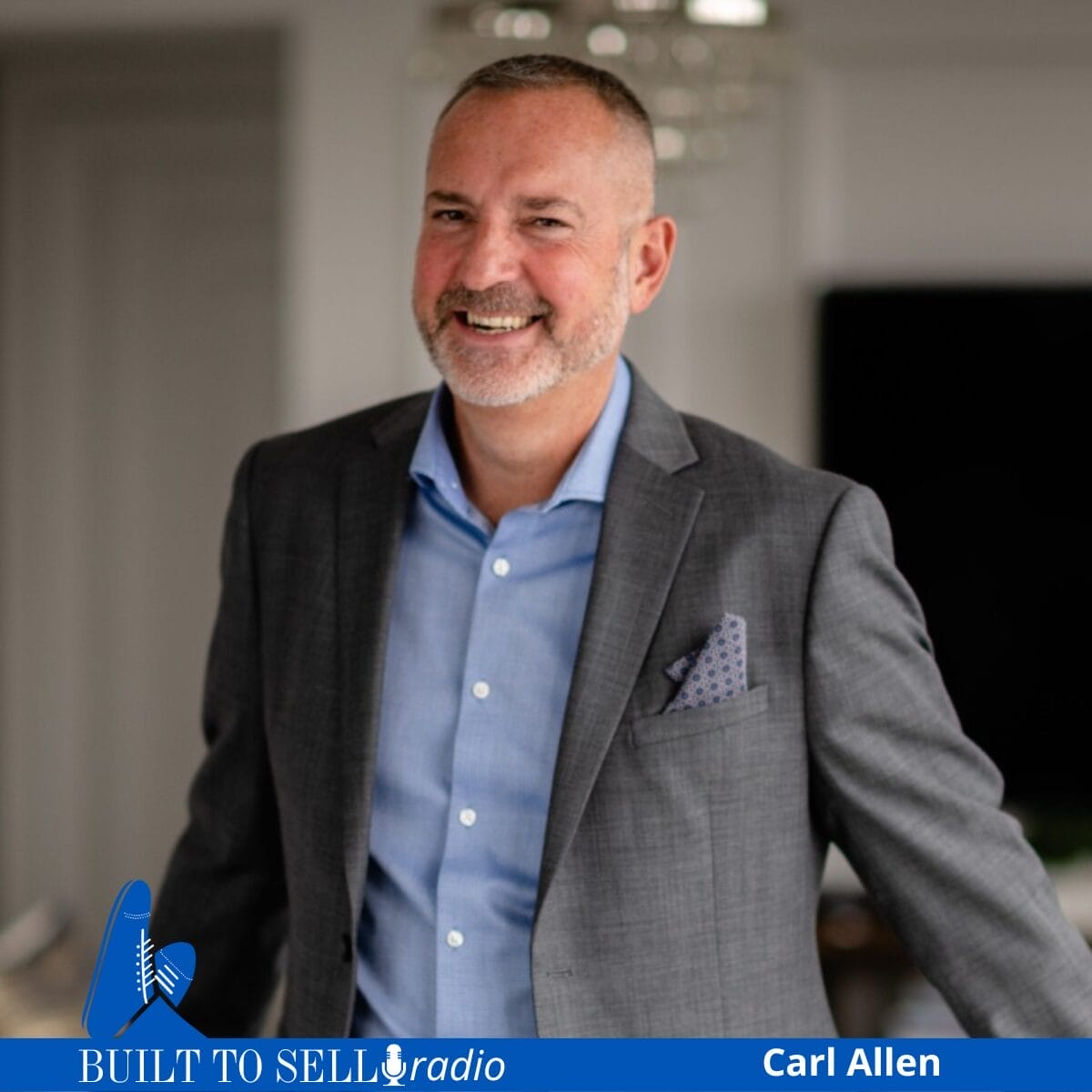About this episode
When it comes to your endgame, what’s your highest priority? Do you want to maximize your personal wealth and walk away? Or do you want to de-risk but keep some chips on the table? Or is your highest priority protecting your culture, your employees, and the legacy you have built? If your goal is to protect your culture, then selling to an individual investor may be worth considering.
In this episode of Built to Sell Radio, you’ll hear from Carl Allen, a former guest and HP executive who was responsible for acquiring companies for the tech giant. These days, Carl teaches individual investors how to buy their first business. You’ll get inside the minds of the individual investors Carl coaches to understand how they structure acquisition offers, and you’ll discover the telltale signs that an individual investor is either going to honor or ruin your company’s legacy. You’ll discover how to:
- Protect your culture and employees when you sell.
- Minimize the risk of signing a personal guarantee.
- Spot an individual investor who is likely to honor—or ruin—your legacy.
- De-risk your company for an acquirer.
- Leverage the “buy box.”
- Make your company irresistible to individual investors.
- Ensure you’re happy after selling your company.
Show Notes & Links
Connect with Carl on LinkedIn
Connect with Carl on Instagram
Visit Carl’s YouTube Channel
Definitions
Due-Diligence: This is a comprehensive appraisal of a business or investment undertaken before a merger, acquisition, or investment. It seeks to validate the information provided and uncover any potential risks or liabilities.
Sellers Discretionary Earnings (SDE): This represents the earnings of a business before the owner’s salary, interest, taxes, depreciation, and amortization. It’s used to assess the true earning potential of a small business. Imagine you have a lemonade stand. At the end of the day, you count how much money you made. But from this money, you need to pay for the lemons, sugar, cups, etc. What you have left after paying for these things is similar to what businesses call “profit.”
However, if you paid yourself a small amount for your time running the lemonade stand, or maybe you bought a new sign to attract more customers, those are costs that are specific to you as the owner and are considered “discretionary.” They are costs that a new owner might not have or might choose to spend differently.
So, Seller’s Discretionary Earnings (SDE) in business terms is like the money left from the lemonade stand, plus any extra costs or payments that were specific to the current owner. It’s a way to show how much money a new owner might expect to earn from the business, considering they might have different ways of running things. In simpler terms, it’s a measure of a business’s earning power from the viewpoint of the owner.
Note: In the world of mergers and acquisitions (M&A), a “note” is like an IOU, a promise to pay back money.
Imagine two kids, Sally and Bob. Sally has a lot of candies, and Bob wants to have some. They decide to strike a deal. Sally gives some candies to Bob today, and Bob promises to give Sally some of his lunch money next week. Here, Bob’s promise is similar to a “note” in M&A.
When one company decides to buy another company, they might not pay all the money upfront. Instead, they might pay part of it later. This promise to pay a certain amount in the future is often written down as a “note.”
This way, the seller gets some money now and more money later, and the buyer doesn’t have to come up with all the money at once. It’s a way for both parties to feel comfortable with moving forward with the deal.
Surety Bond:
Imagine you are selling your business, and the buyer wants assurance that you will fulfill certain obligations after the sale. This is where a surety bond becomes relevant in business acquisitions.
Here’s the process explained simply:
- As the seller, you have responsibilities to fulfill even after the sale of your business. These might include paying off any remaining debts, transferring licenses, or completing specific contractual duties.
- The buyer, seeking assurance that these responsibilities will be met post-sale, requests that you obtain a surety bond.
- You, as the seller, approach a surety company to acquire this bond. The surety company evaluates your ability to fulfill the post-sale obligations.
- If you, the seller, are unable to meet these obligations after the business is sold, the surety company intervenes. They will either ensure that the obligations are completed or compensate the buyer for any losses resulting from your failure to fulfill these duties.
In summary, a surety bond in the context of business acquisitions is a form of protection for the buyer. It ensures that the seller’s post-sale obligations are met. For you as the seller, obtaining a surety bond can be a crucial step in providing the buyer with confidence and security in the transaction, potentially facilitating a smoother sale process.

About Our Guest
Carl Allen


